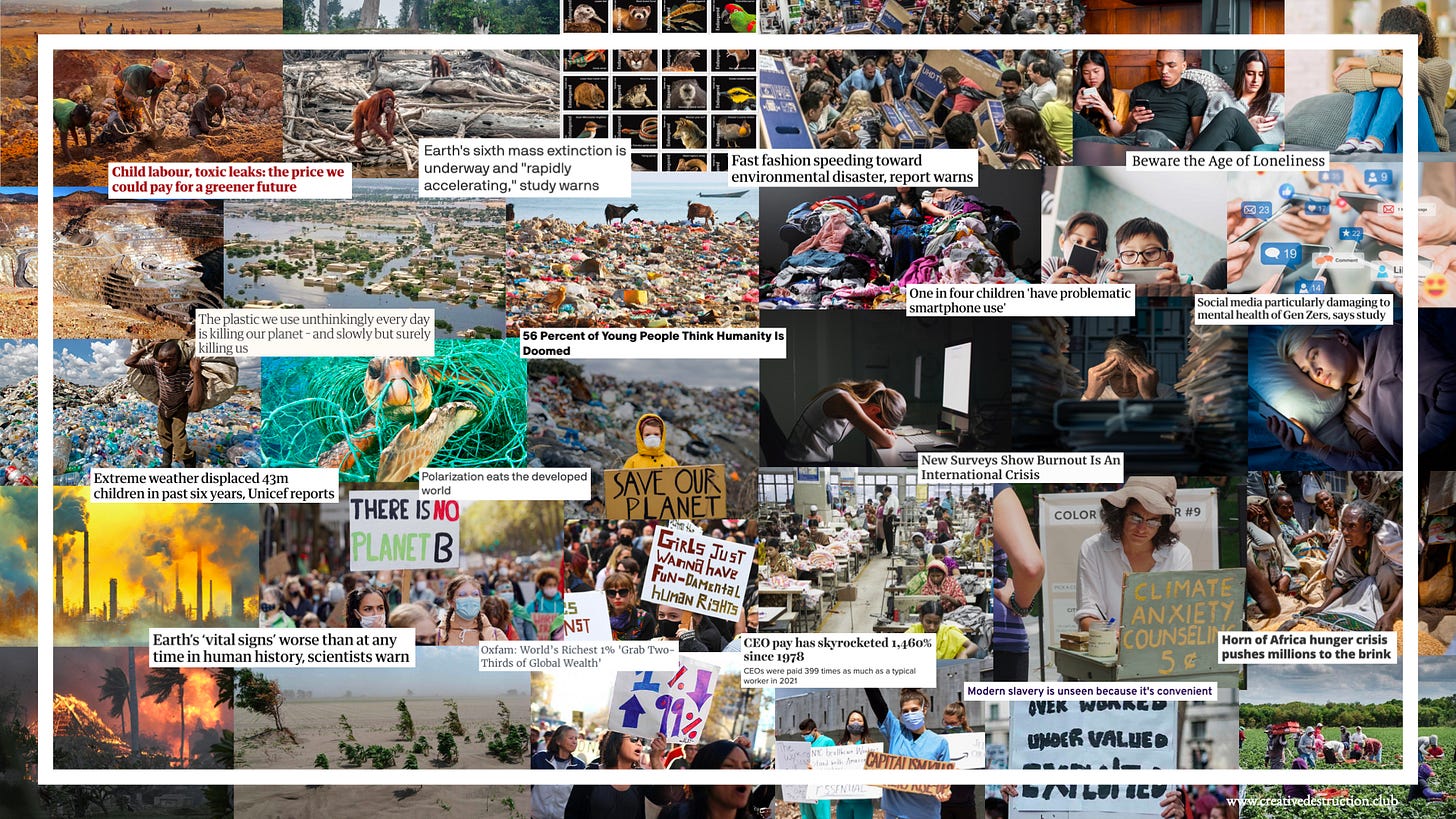From Vicious to Virtuous Cycle
Tapping into an emerging worldview by acknowledging people's deep-seated needs

Within the last 200 years or so, we have not only industrialized and commodified most of the planet but also our own bodies and minds. We know that this way of living is destructive, but we do it anyway because we’ve become addicted to it.
We're caught in a self-perpetuating, vicious cycle in which escalating industr…


